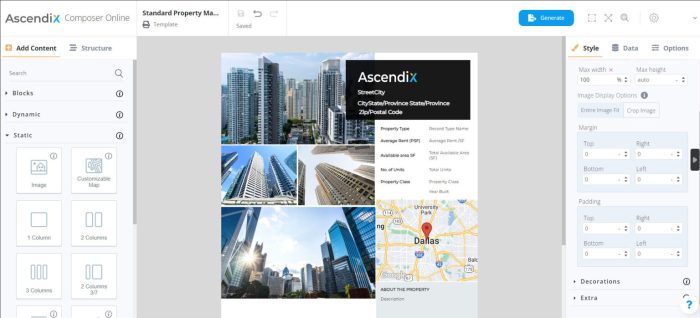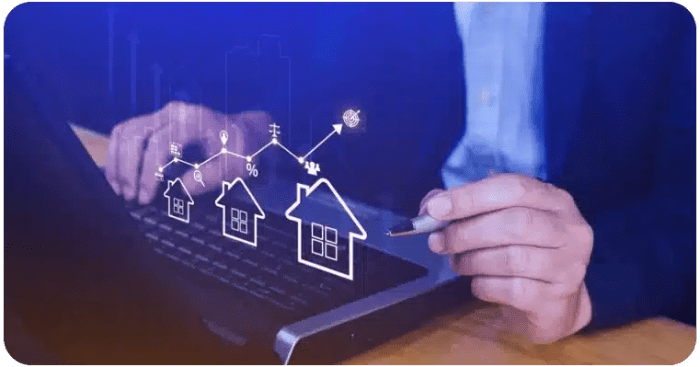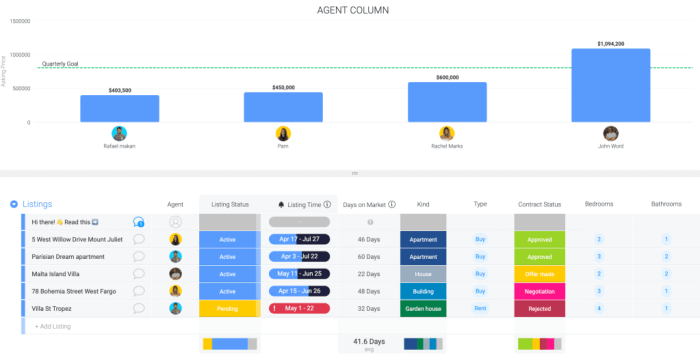CRM for commercial real estate is revolutionizing how businesses manage client relationships, streamline operations, and ultimately drive revenue. This innovative system provides a comprehensive platform for tracking leads, managing deals, and nurturing client interactions, ensuring smooth and efficient transactions from start to finish.
By centralizing all critical data, commercial real estate professionals can gain valuable insights into market trends, client preferences, and overall performance. This allows for strategic decision-making, targeted marketing campaigns, and personalized client experiences that foster lasting partnerships.
Commercial real estate is a complex and dynamic industry, requiring sophisticated tools to manage relationships, track deals, and ultimately drive revenue. A robust CRM (Customer Relationship Management) system can be a game-changer for real estate businesses, streamlining operations, improving communication, and fostering stronger client relationships. This guide delves deep into the world of CRM for commercial real estate, exploring its benefits, key features, and how to choose the right system for your needs.
Understanding the Need for CRM in Commercial Real Estate: Crm For Commercial Real Estate
Commercial real estate transactions are often large, multi-faceted, and involve multiple stakeholders. Without a dedicated CRM system, managing these interactions can quickly become overwhelming. A CRM for commercial real estate allows businesses to:
- Centralize Client Data: Store and access comprehensive information about clients, properties, and deals in one secure location.
- Streamline Communication: Automate communication tasks, such as sending follow-up emails, scheduling appointments, and managing correspondence.
- Track Deals Effectively: Monitor the progress of each deal from initial contact to closing, identifying potential roadblocks and opportunities for improvement.
- Improve Lead Management: Effectively manage leads, nurture prospects, and convert them into paying clients.
- Boost Sales Productivity: Increase efficiency by automating tasks, improving data accessibility, and providing real-time insights.
Key Features of a Commercial Real Estate CRM
A good CRM system for commercial real estate should encompass a range of features that address the specific needs of this industry. Key features include:
Property Management
Comprehensive property listings, detailed specifications, and integration with property portals. The ability to track lease agreements, maintenance schedules, and tenant communication is crucial.
Deal Tracking and Pipeline Management
Detailed deal tracking, from initial contact to closing. Visualizing the sales pipeline, identifying bottlenecks, and forecasting revenue are critical.

Source: ascendix.com
Lead Management and Nurturing
Sophisticated lead scoring, automated follow-up sequences, and personalized communication strategies to nurture prospects.

Source: kenyt.ai
Client Relationship Management, Crm for commercial real estate
Storing detailed client information, maintaining a comprehensive history of interactions, and personalizing communication.
Reporting and Analytics
Generating reports on key metrics, including sales performance, lead conversion rates, and client satisfaction. This data is essential for informed decision-making.
Integration Capabilities
Seamless integration with other business tools, such as accounting software, email marketing platforms, and property portals, is essential for efficiency.
Choosing the Right CRM for Your Business
The ideal CRM for commercial real estate depends on the specific needs and scale of your business. Factors to consider include:
- Budget: Evaluate the pricing models and features offered by different CRM providers.
- Scalability: Ensure the CRM can adapt to your growing business needs.
- User-Friendliness: Choose a CRM that is easy for your team to learn and use.
- Customization Options: Look for a CRM that can be tailored to meet your specific workflows and requirements.
- Customer Support: Assess the quality of customer support provided by the CRM vendor.
Real Estate CRM Software Comparison
Several CRM platforms cater to commercial real estate, each with unique strengths and weaknesses. A comparison of popular options would be beneficial here. Refer to reputable industry websites like [insert trustworthy real estate tech comparison website here] for more detailed information.
Frequently Asked Questions (FAQ)
- Q: How much does a CRM for commercial real estate cost?
A: CRM pricing varies significantly based on features, user licenses, and integration options. Contact providers directly for accurate pricing.
- Q: How long will it take to implement a CRM system?
A: Implementation time depends on the CRM’s complexity, your team’s familiarity with the software, and the level of customization required.
- Q: Can a CRM improve my sales performance?
A: Yes, a well-implemented CRM can significantly improve sales performance by streamlining processes, enhancing communication, and providing valuable data insights.
Conclusion
Implementing a CRM system for commercial real estate can significantly enhance efficiency, improve communication, and ultimately drive revenue. By carefully considering your needs and choosing the right platform, you can unlock the full potential of your commercial real estate business.
Ready to elevate your commercial real estate game? Contact us today for a consultation to explore how a CRM can benefit your business.
In conclusion, implementing a robust CRM system is crucial for success in the competitive commercial real estate market. By leveraging the capabilities of CRM for commercial real estate, businesses can enhance their efficiency, strengthen client relationships, and ultimately achieve remarkable growth and profitability. The future of commercial real estate is undeniably linked to the effective utilization of such cutting-edge technology.

Source: cloudinary.com
Questions Often Asked
What types of data can be tracked with a CRM for commercial real estate?
A robust CRM can track a wide array of data, including client contact information, property details, transaction history, communication logs, and even market analysis data. This comprehensive tracking enables businesses to make data-driven decisions.
How does CRM for commercial real estate improve client communication?
CRM systems automate communication workflows, enabling businesses to send personalized emails, schedule follow-up calls, and track interactions effectively. This ensures clients receive timely and relevant communication, fostering stronger relationships.
What are some common CRM features for commercial real estate?
Common features include lead management, deal tracking, property management, reporting and analytics, and customizable dashboards. These features provide a comprehensive overview of all aspects of the business.